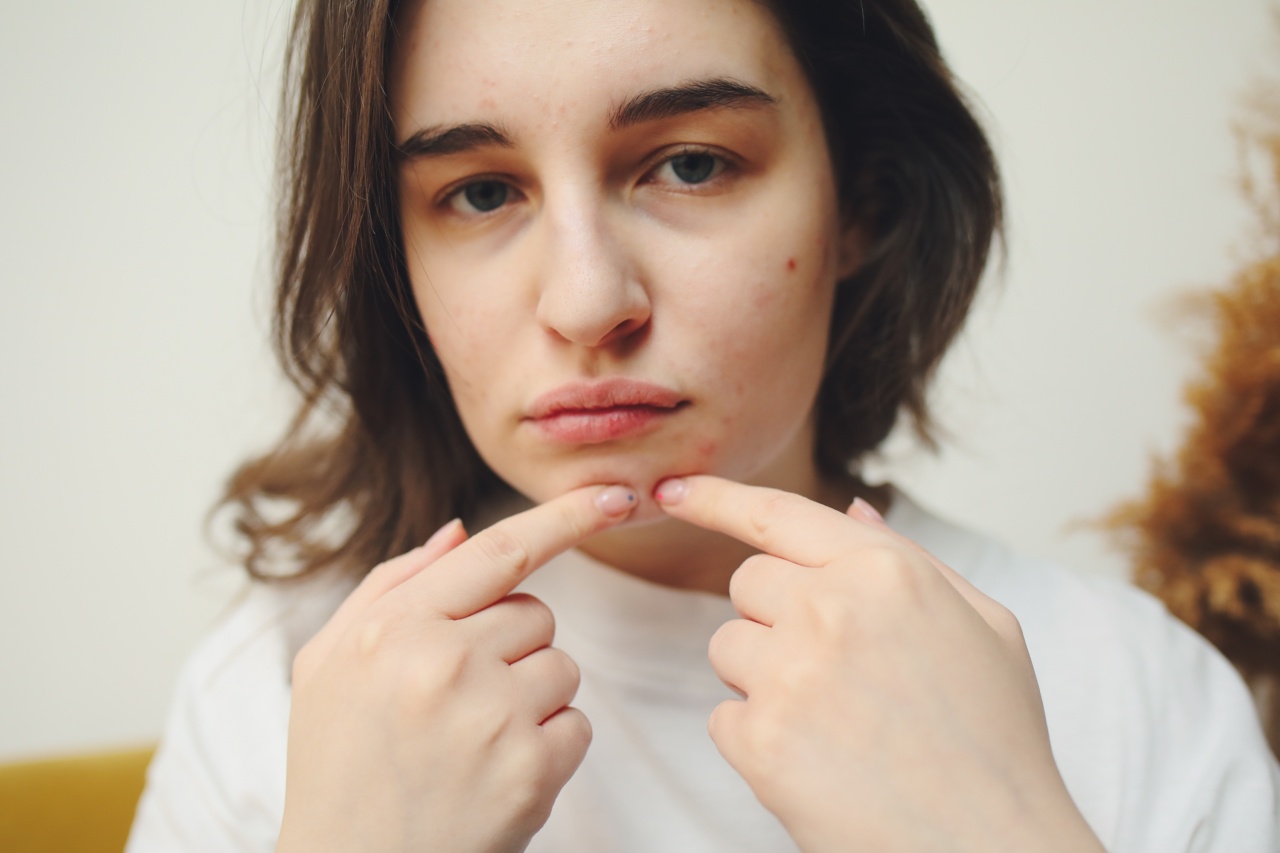Pimples, those pesky little blemishes that appear on our skin, can be quite bothersome. They often make us feel self-conscious and tempted to pop or squeeze them.
However, popping pimples is not the best approach to treat them and can actually do more harm than good to our skin. In this article, we will discuss several reasons why you should avoid popping pimples and explore alternative ways to treat and prevent them naturally.
Potential Risks of Popping Pimples
1. Infection: Pimples are typically caused by bacteria that clog our pores. When you pop a pimple, there is a risk of introducing more bacteria from your fingers or nails into the already infected area, which can lead to an infection.
This can worsen the inflammation and potentially cause more breakouts.
2. Scarring: Popping pimples can cause trauma to the skin, leading to scarring. When you squeeze a pimple forcefully, you can damage the surrounding tissue and leave behind red or dark marks that can take months to fade.
In some cases, popping pimples can even result in permanent scars.
3. Spreading the Infection: Pimples are not isolated events; they can occur in clusters or be part of a larger breakout.
Popping one pimple can release the pus and bacteria, allowing them to spread to adjacent pores, leading to more breakouts in the surrounding area. This can create a vicious cycle of continuous breakouts.
Prolonged Healing Time
When you pop a pimple, you disrupt the body’s natural healing process. The body naturally tries to repair the damaged skin by sending blood flow and nutrients to the affected area.
However, by popping a pimple, you interfere with this process and it may take longer for the pimple to heal completely. This can prolong the overall healing time and potentially result in a more noticeable scar.
Increased Inflammation
Popping a pimple may provide temporary satisfaction by releasing the built-up pus and reducing the size of the pimple. However, the act of squeezing or applying pressure to the pimple can actually cause more inflammation in the surrounding area.
This can make the pimple appear more red, swollen, and irritated, making it even more noticeable and harder to conceal.
Alternative Ways to Treat Pimples
1. Gentle Cleansing: Instead of popping pimples, focus on keeping your skin clean. Use a gentle cleanser with salicylic acid or benzoyl peroxide to cleanse your face twice a day.
These ingredients can help to unclog pores, reduce inflammation, and kill acne-causing bacteria.
2. Use Topical Treatments: There are numerous over-the-counter creams, gels, and spot treatments available that contain ingredients like benzoyl peroxide, tea tree oil, or sulfur.
These products can help to dry out pimples and reduce their size without the need for popping.
3. Apply Warm Compresses: A warm compress can help to reduce inflammation and accelerate the healing process of a pimple.
Gently apply a warm washcloth or a warm tea bag onto the pimple for a few minutes a few times a day to soothe the area and promote healing.
4. Spot Treatments: If you have a particularly stubborn or painful pimple, instead of popping it, consider using a spot treatment that contains ingredients like salicylic acid or benzoyl peroxide.
These spot treatments are specifically formulated to target individual pimples without causing dryness or irritation to the surrounding skin.
5. Maintain a Healthy Diet: What you put into your body can also affect your skin health. Avoid consuming excessive amounts of sugary or greasy foods, as they can contribute to acne breakouts.
Instead, opt for a balanced diet rich in fruits, vegetables, lean proteins, and whole grains to support overall skin health.
6. Keep Hands Away from Face: Our hands come into contact with various bacteria and germs throughout the day, and touching our face can transfer these impurities to our skin.
Avoid touching your face unnecessarily, as this can worsen existing pimples or create new ones.
Preventing Pimples
Preventing pimples before they even have a chance to develop can help avoid the temptation to pop them. Here are a few tips:.
1. Cleanse Regularly: Cleansing your face twice a day can remove excess oil, dirt, and dead skin cells, preventing them from clogging your pores and leading to pimples. Use a gentle cleanser suitable for your skin type.
2. Exfoliate: Regular exfoliation can help remove the buildup of dead skin cells that can contribute to clogged pores. Be cautious not to over exfoliate, as it can strip the skin of its natural oils and cause irritation.
Opt for a gentle exfoliant or consider using chemical exfoliants like glycolic acid or salicylic acid.
3. Hydrate: Ensuring your skin is adequately hydrated can help maintain its natural balance and prevent excess oil production. Use a lightweight, oil-free moisturizer suitable for your skin type to keep your skin hydrated without clogging the pores.
4. Avoid Heavy Makeup: Heavy, oil-based makeup products can clog your pores and contribute to pimples. Opt for lightweight, non-comedogenic makeup that allows your skin to breathe.
5. Protect Your Skin: Always use sunscreen, even on cloudy days, to protect your skin from harmful UV rays. Look for non-comedogenic sunscreen to avoid clogging your pores.
Conclusion
While the urge to pop a pimple can be strong, it is important to resist the temptation. Popping pimples can lead to infections, scarring, and prolonged healing time.
Instead, focus on gentle cleansing, using topical treatments, and utilizing natural remedies to treat and prevent pimples. By adopting a consistent skincare routine and taking preventive measures, you can maintain clearer, healthier skin in the long run.






























